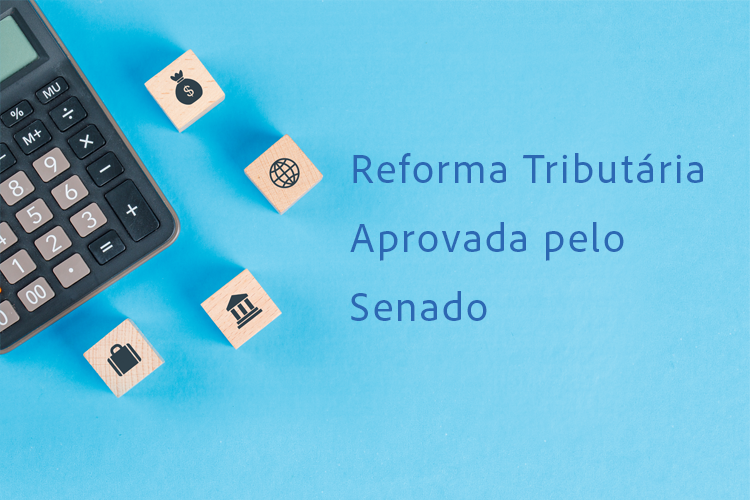

On November 8, the Federal Senate approved the tax reform bill, conducted in two rounds of voting, both with a score of 53 to 24 votes. Senator Eduardo Braga (MDB-AM) was the rapporteur of the proposal, which suggests a tax simplification through the establishment of a dual Value Added Tax (VAT).
After undergoing amendments in the Senate, the Proposed Amendment to the Constitution (PEC) will return to the Chamber of Deputies for a new vote, following the legislative process.
Highlights of the Reform:
Unification of Taxes: The reform seeks to replace five current taxes (ICMS, ISS, IPI, PIS, and Cofins) with just three: the Tax on Goods and Services (IBS), the Contribution on Goods and Services (CBS), and the Selective Tax (IS).
VAT – Value Added Tax: The main objective of the VAT is to eliminate cumulative taxation, applying only to the added value at each stage of production and commercialization of goods and services.
Rates and Exemptions: The text proposes standard and differentiated rates, with exemptions aimed at essential sectors such as education and health, in addition to a national basic basket of products, which will be exempt from taxation.
Tax Cashback: Aiming to reduce income inequalities, the implementation of a tax refund system for low-income families is planned, applicable to essential items such as gas and electricity.
Tax “Cap”: To prevent an increase in the tax burden on consumption, the proposal includes a cap based on the average tax collection relative to GDP in the period from 2012 to 2021.
End of the Fiscal War: Taxes will be charged at the destination of consumption, no longer at the origin, with the intention of ending the granting of competitive fiscal benefits between states.
Selective Tax – “Sin Tax”: This tax will be levied on goods and services considered harmful to health and the environment, such as cigarettes and alcoholic beverages.
Regional Compensations: The creation of the National Fund for Regional Development (FNDR) aims to reduce inequalities between states, with a distribution of resources that will progressively grow until 2043.
The tax reform seeks to achieve a structural change with the potential to increase economic efficiency, reduce the complexity of the tax system, and boost national development. Now, the proposal returns to the Chamber of Deputies, where the PEC will be subjected to another round of analyses and votes.